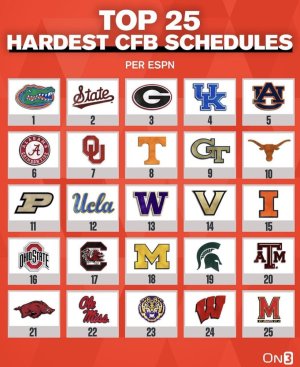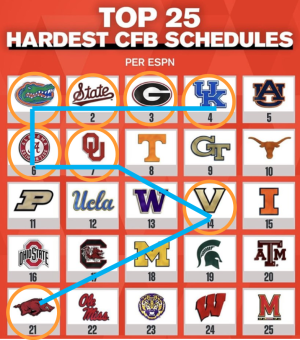Pre-season rankings are more useful than some folks think. Using the nine-season period from 2014 to 2022:
* 7 of 9 times, the #1 pre-season team has made the 4-team playoffs.
* 5 of 9 times, the #2 pre-season team made them.
* 4 of 9 times, the #3 pre-season team got in.
So getting ranked in the top 3, pre-season, was a decent predictor of a team's chances getting into the final top 4 spots.
Funnily, the #4 pre-season team almost never makes the playoffs (1 of 9 times), but the #5 team makes it about half the time (5 of 9). So better statistically to start out at #5 than #4, heh.
The average post-season ranking of every team in the pre-season top 15 is in the top 25. So if you start the season in 1 through 15, you're more likely than not to end the season somewhere top 25. That's not bad.
It gets spottier after that. The #17, #18, #19, #20, #21, #23 and #24 spots are statistically likely to end the year top 25, but the #16, #22 and #25 are probably out of it.
All said and done, if you're in the Top 25 pre-season, you're generally likely to be in the Top 25 post-season.
Sure, every year teams crash and burn after starting the year in the Top 25. And teams make the final rankings who weren't even getting votes at the start of the year. Football is a weird game, the ball bounces funny, and "on any given Saturday" is real.
Nonetheless, it is far better to be ranked pre-season than it is not to be. And the higher, the better. You'll end up better off, most of the time.
And this means, as a one-off by-product, pre-season strength of schedule rankings are not as baseless as some might be saying.
Go Vols!
source: a 2023 article on NCAA website:
How the AP preseason football poll predicts the College Football Playoff





